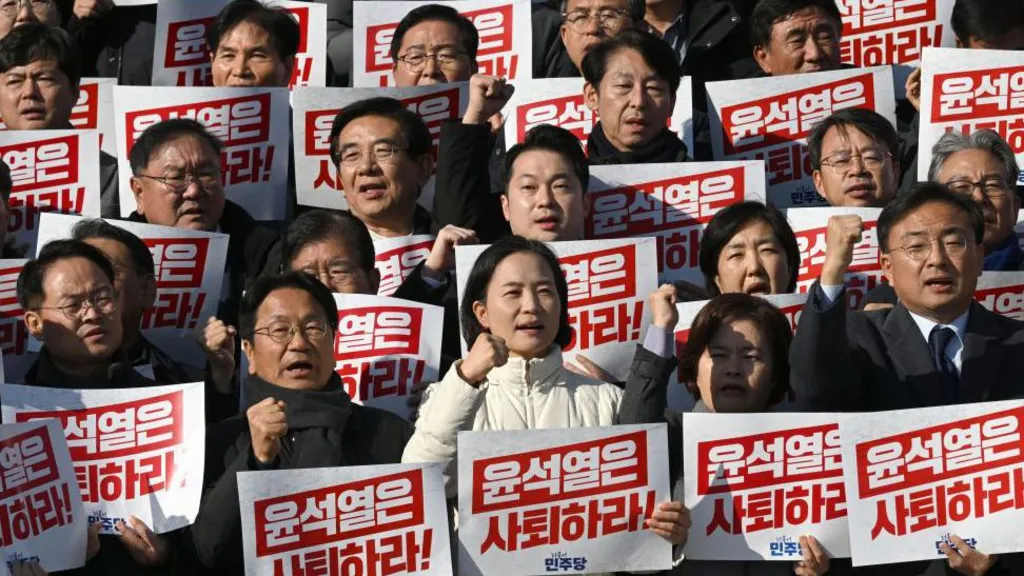SEOUL, Dec 4 (Reuters) – South Korean President Yoon Suk Yeol, who had promised to position his country as a "global pivotal state," faced swift international diplomatic backlash on Wednesday following his failed attempt to impose martial law.
Yoon announced martial law in a televised address late Tuesday, but reversed the decision just six hours later after parliament defied police and special forces blockades to vote against it.
Swedish Prime Minister Ulf Kristersson, who had been scheduled to meet with Yoon this week, canceled his visit, according to a statement from his spokesperson on Wednesday.
"Given the recent developments, we have decided to postpone the visit," the spokesperson said in a statement.
The United States, South Korea’s key ally, also indefinitely postponed meetings of the Nuclear Consultative Group (NCG) and related military exercises, a U.S. official said, speaking on condition of anonymity. The NCG is a key initiative by President Yoon, designed to strengthen South Korea’s role in allied nuclear war planning on the Korean Peninsula.
Approximately 28,500 U.S. troops are stationed in South Korea, but it remains unclear whether other joint military exercises will be impacted. A spokesperson for U.S. Forces Korea did not immediately respond to a request for comment.
The U.S. and South Korean militaries are "in contact," the Pentagon said on Tuesday, noting that there has been no request for assistance from Seoul amid the ongoing situation.
Pentagon spokesperson Major General Patrick Ryder stated in a briefing that he did not believe the martial law declaration had any significant impact on U.S. troops, some of whom serve in combined commands with the South Korean military.
A White House spokesperson earlier stated that the U.S. was not notified in advance of President Yoon's martial law declaration, adding, "We are seriously concerned by the developments we are seeing on the ground."
The martial law announcement has cast doubt on the planned visit of U.S. Defense Secretary Lloyd Austin next week. Japanese media reported that Austin was scheduled to meet with South Korean and Japanese counterparts as part of trilateral efforts supported by Yoon.
A Japanese lawmaker group focused on Korean affairs, led by former Prime Minister Yoshihide Suga, canceled a visit to Seoul that was set for mid-December, according to Akihisa Nagashima, a special advisor to Japan’s prime minister, who was also due to travel with the group.
"The turmoil in South Korea's domestic politics since last night continues to be alarming," Nagashima wrote in a post on X. "It is a tense situation in which the fate of the Yoon administration must be closely watched to see whether it can overcome fierce public opposition."
Japanese Prime Minister Shigeru Ishiba also expressed concern, telling reporters that Tokyo was monitoring the situation "with particular and grave interest."
Duyeon Kim of the Center for a New American Security noted that Yoon’s international reputation as a symbol of democracy has been tarnished. "The fate of Yoon’s foreign policies remains uncertain and even bleak," she added.
Reporting by Josh Smith; Additional reporting by Idrees Ali in Washington, and John Geddie and Kantaro Komiya in Tokyo; Editing by Stephen Coates and Lincoln Feast.








0 মন্তব্যসমূহ